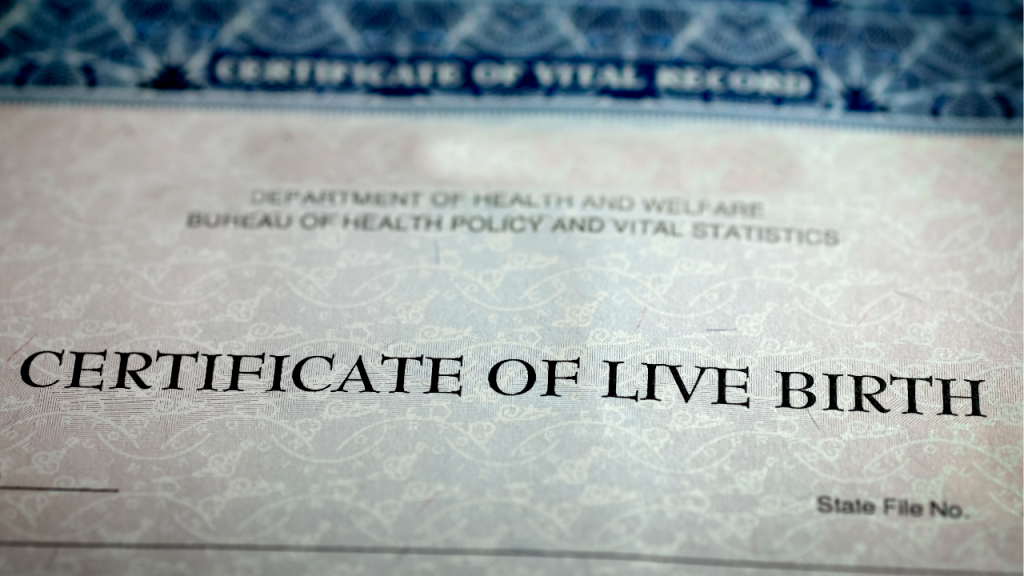Applying for an Overseas Citizen of India (OCI) card is a significant step for Non-Resident Indians (NRIs) and Persons of Indian Origin (PIO) who wish to maintain strong ties with India. One of the most crucial documents required for this process is the Indian birth certificate. With the introduction of new digital reforms and updated requirements in 2025, understanding how to obtain a birth certificate from India for an OCI card has never been more important.
In this Article
Why Is a Birth Certificate Essential for OCI Applications?
A birth certificate is a mandatory document for OCI card applications. It serves as official proof of your Indian origin, confirming your date and place of birth, and establishing your eligibility for the OCI card. The Indian government now recognizes the birth certificate as the primary document for verifying birth details across all services, streamlining the process for NRIs and their families.
Must Read: Why the OCI Card Is a Must-Have for the Indian Diaspora
2025 Updates: New Birth Certificate Rules in India
The Registration of Births and Deaths (Amendment) Act, 2023, has brought substantial changes to the way birth certificates are issued and used in India. The key highlights include:
- One Nation, One Birth Certificate: The birth certificate is now the singular, authoritative document for all official purposes, including OCI applications, school admissions, passport issuance, and more.
- Unified Digital Database: All states are required to integrate their civil registration systems with a central digital database, allowing for real-time access and verification of birth records.
- Mandatory for Multiple Services: Birth certificates are now compulsory for a wide range of services, making it even more vital for NRIs to secure this document for themselves and their children.
Step-by-Step Guide: How NRIs Can Obtain a Birth Certificate from India for OCI
1. Check Existing Registration
First, determine if your birth was registered in India. Contact the relevant local authority where the birth may have been recorded. Many local authorities now allow you to check records online.
2. Apply Online (If Available)
Most Indian states and major cities offer online birth certificate services through their official government portals. This digital approach speeds up the process and allows NRIs to apply remotely.
Check Out: How to Apply for OCI (Overseas Citizen of India)
3. Apply Offline (If Necessary)
If online services are unavailable, visit the local municipal office or registrar in person. Collect and fill out the application form, which is often available for download on the official website or at the office itself.
4. Prepare Required Documents
You will typically need to provide:
- Proof of identity (passport, Aadhaar card)
- Address proof (utility bill, lease agreement)
- Proof of birth (hospital record, school leaving certificate)
- Completed application form
- Witness statement, if required
For OCI applications, ensure your birth certificate includes both parents’ names. If the certificate is newly issued, it must be certified by the District Magistrate or Collector and apostilled by the Ministry of External Affairs.
5. Submit and Track Your Application
Submit your application and supporting documents as instructed by the local authority. Processing times can vary but typically range from 2 to 4 weeks. Some regions may require additional verification or paperwork, so follow up regularly.
6. Receive and Verify Your Birth Certificate
Once issued, review your birth certificate for accuracy. Any discrepancies (such as misspelled names or incorrect details) should be corrected immediately to avoid issues during your OCI application.
What If Your Birth Certificate Is Not Available?
If your birth was not registered or the record is missing, you will need to apply for a Non-Availability of Birth Certificate (NABC) from the municipal authority.
To obtain an NABC, you may need to submit:
- A notarized affidavit stating your birth details
- School records or transfer certificates
- Passport or government-issued ID
- Parents’ documents
- Possible legal declaration or court order (in complex cases)
This document certifies that no official birth record exists, which can then be used alongside other supporting documents for your OCI card application.
Special Considerations for OCI Card Applications
- For Minors: The birth certificate must include both parents’ names. If applying based on parents’ or grandparents’ Indian origin, provide supporting documents such as their birth certificates, marriage certificates, and Indian passports.
- Apostille Requirement: For certificates issued outside India or recently issued in India, apostille or attestation by the Ministry of External Affairs is mandatory.
- Proof of Relationship: If applying based on ancestry, you may need to provide additional evidence of relationship, such as family trees or legal affidavits.
Common Challenges Faced by NRIs
Navigating Indian bureaucracy from abroad can be challenging. Here are a few common issues NRIs encounter:
- Delays: Local offices may take longer than expected, especially in tier-2 or rural regions.
- Lack of Digital Infrastructure: Not all state portals are fully functional or user-friendly.
- Missing Records: Older records (from the 1970s–1990s) may not be digitized or properly maintained.
- Inconsistent Information: Even small errors in your name or birth details can lead to delays in the OCI application process.
Securing a birth certificate from India is a foundational step in your OCI card application journey. With the 2025 reforms, the process is becoming more streamlined and accessible, especially with the shift to digital records. By understanding the latest rules, preparing the right documents, and following the outlined steps, NRIs can efficiently obtain their birth certificates and maintain their connection to India.

